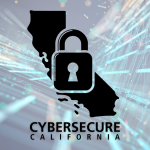In the digital age, cybersecurity compliance isn’t just about protecting your data — it’s about staying within the legal boundaries that govern consumer privacy and data security. For California businesses, this landscape is shaped significantly by state-specific and federal regulations. Cybersecure California, an initiative by Synergy Computing, is dedicated to helping you understand these legal frameworks so you can operate with confidence and integrity. Here’s an overview of the crucial regulations you need to know.
California Consumer Privacy Act (CCPA)
Overview: The CCPA, in effect since January 1, 2020, grants consumers more control over the personal information that businesses collect about them. It is one of the toughest data privacy laws in the United States and sets a precedent for future laws in other states.
Who Is Affected?: The CCPA applies to for-profit businesses that collect and process the personal information of California residents and:
- Have a gross annual revenue of over $25 million.
- Buy, receive, or sell the personal information of 50,000 or more California residents, households, or devices.
- Earn more than half of their annual revenue from selling California residents’ personal information.
Key Requirements:
- Disclosure of data collection and sharing practices to consumers.
- Granting consumers the right to request their data be deleted.
- Allowing consumers to opt-out of the sale of their personal information.
California Privacy Rights Act (CPRA)
Overview: The CPRA, which will supplement and amend the CCPA, is set to come into full effect on January 1, 2023. It expands on the rights provided by the CCPA and introduces additional obligations for businesses.
Key Additions:
- Creation of the California Privacy Protection Agency (CPPA) for enforcement.
- New rights for consumers, such as the right to correct inaccurate personal information and the right to limit the use of sensitive personal information.
- Increased fines for violations involving consumers under the age of 16.
Other Relevant Federal Regulations
While California has its state-specific laws, several federal regulations also impact how businesses handle cybersecurity:
Health Insurance Portability and Accountability Act (HIPAA): If your business handles protected health information (PHI), HIPAA compliance is mandatory, dictating how PHI should be protected and shared.
Sarbanes-Oxley Act (SOX): For public companies, SOX mandates the protection of shareholders and the general public from accounting errors and fraudulent practices.
Payment Card Industry Data Security Standard (PCI DSS): Businesses that handle credit card transactions must adhere to PCI DSS to protect cardholder data.
Federal Trade Commission (FTC) Cybersecurity Regulations: The FTC enforces regulations that require businesses to protect consumer data and act against unfair or deceptive practices.
Staying Compliant
Compliance isn’t a one-time project; it’s an ongoing process. Here are some steps your business can take:
- Regular Audits: Conduct periodic reviews of your data handling practices.
- Employee Training: Educate your staff on compliance requirements and cybersecurity best practices.
- Data Protection Measures: Implement and maintain appropriate cybersecurity measures.
- Legal Consultation: Work with legal experts who specialize in data privacy laws.
How Can We Help?
Staying compliant with evolving cybersecurity laws is a complex task that can distract you from your core business activities. At Cybersecure California, we offer the guidance and support your business needs to navigate these waters. Let Synergy Computing’s expertise in cybersecurity solutions keep you ahead of the compliance curve.
Get proactive about compliance. Schedule a discovery call and ensure your business is not only secure but also fully compliant.

